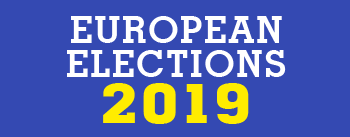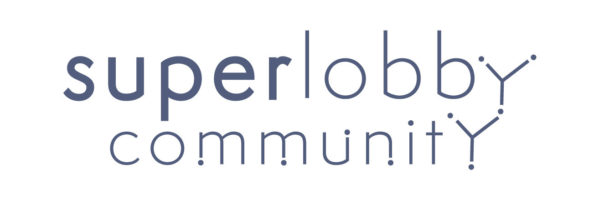
In the first blog about me not running for the European Parliament, I explained my reasons and initial deliberations. I knew if I wanted to make it I had to win over the hearts and minds of three crowds; the general public (in order to get 20.000 preferential votes), the members of D66 (for support of my ideas and to get a higher place on the list), party hotshots (to get an initial high place on the list). In the years between 2015 and 2017, I was campaigning as if it was the final months before the elections. I was in maniac mode.
Op-eding my way to prominence
At a very early stage of my career as a lobbyist, I learned the power of a well-written, and well-timed Op-Ed. For those that don’t know, Op-Eds are opinion pieces in the newspapers. The lure of reaching hundreds of thousands of people without the advertising cost is big. However, the competition is big and newspaper editors are killers. Only the best pieces get published. Through the help of books, I learned the tricks of how to get an Op-Ed accepted by newspapers. I launched a barrage of Op-Eds on the theme of reform, Treaty Change and transparency. I think I wrote about 30 op-eds in a span of two years. I managed to get op-eds in most national newspapers. One of the challenges was that I was a lobbyist, and nobody votes for lobbyists. So trying to bend my image/brand to that of a reformer, instead of a master lobbyist. One of the things that really helped was when I switched jobs to work for the Dutch Parliament as an EU Specialist. The drawback was that as a clerk I could no longer be very vocal politically. At least not publicly. So I needed to move my activities under the radar. This is a puzzle a lot of people face when running for office: “How to campaign and not lose my job over it”. My advice is to have a good talk with your employer. This fixes most problems. If you have the luxury of choosing, try working for an NGO that actually allows you to be very vocal.
Social Media
Back then, I didn’t believe too much in the power of social media. Actually, I still don’t. As one media expert told me; old media beats new media every time. However, what social media does quite well is allocating “perceived value”. In other words the more followers you have the more status you have. It’s called vanity metrics. And while vanity metrics are stupid, people simply are easily impressed if you have a lot of followers. So I figured it would be better to have a lot of followers instead of having no followers. My strategy was to ask people to follow me on all speaking engagements. That worked to some extent. Social media works very simply; the more energy you pour into it, the more followers you will get. It is as simple as that. Ah yes, I might have also used some illegal apps back then. Anyway, I managed to get some 5000 followers on Twitter. In the next and final blog post, I will teach you how to lose 5000 Twitter followers overnight.
Learning (from the best)
One of the things I learned from the last elections was that everybody that thought they would make a good run didn’t. Being over-confident seemed to affect campaigns negatively. On the contrary, doubt seemed to keep winners sharp. And since I didn’t know how to run a good campaign, I tried to analyse the campaigns of people that had over 20.000 votes in the 2014 elections. I came across some really interesting takeaways. Like that there are a lot of campaign gurus out there, but if you look at their track record, most of them have huge campaign losses on their names. Instead, I turned toward people with a proven formula. Lambert van Nistelrooij really stood out in that. While a lot of people don’t know him, he is a campaign monster. He ran 9 times (from local to European elections, and NEVER lost). I also looked at the campaigns from Jan Huitema and Annie Schrijer Pierik. But I also talked to a lot of campaign managers. I also talked to a lot of people that didn’t manage to get a seat but ran impressive campaigns nonetheless. My biggest takeaways were that people that did well in the elections had 1) clear constituencies, 2) they managed to reach the national media 3) they organized their resources very well and 4) and most importantly they all went ALL IN. You really cannot expect to get votes doing this half-heartedly.
Constant learning became an important part of the campaign. In the Netherlands, a lot of data can be found from the government agency that is entrusted with organising the elections (de Kiesraad). You can find a lot of data within and between voting districts. If you mail them they will even send you data by voting location. As such, I was able to find out where the hardcore pro-EU voters reside. But also the geographical impact of candidates with specific constituencies. It not only teaches you where to target but also where to forfeit and not spend any energy.
I was a bit disillusioned with the books about campaigning and opted to talk with people that have managed campaigns instead. Maybe the book that I would single out as useful was the biography of Thorbecke. Thorbecke reformed the Dutch constitution, and I was eager to know how he did it. The three things that stuck with me the most were that he was the ultimate expert on constitutional reform in the country, he was a very unpleasant man and he had a drive that bordered on the maniacal.
An active party member
Meanwhile, I was becoming very active within the party. As a board member of the D66 Utrecht, I got to learn a lot about processes but also inter-party dynamics. One of the first things that I learned was the importance of being simply nice and pleasant. In lobbying, when push came to shove I could be or become an asshole. You can’t do that within party dynamics. People really value cooperative personalities. I was also using every congress to put forth motions on European reform. This not only build my EU profile, but it also made me connect within the party with like-minded people. I needed to seek out party members to build support for my motions and thus also came across people that are also pro-EU-reform. When I joined D66, I must admit I was a bit skeptic about party politics. Moreover, I was in it more in an opportunistic way; it was a vehicle for my ambitions. This by the way holds true for a lot of people joining a party, and that is totally fine. I unexpectedly started to like both the party and its members a lot. One of the things which I didn’t do is join a formal structure like the working group on European Affairs or something similar. I thought that by being “just a member” I would be able to blur many more things which were not in line with conventional thought about the EU within the party. This proved to be true.
Touring the country
Through my op-eds, my activities and later in the book I wrote, I was building my profile. In turn; I was getting more and more requests for speaking engagements. This went so well that it became a self-propelling machine. The more I spoke – the more Twitter followers and the more speaking engagements. A lot went through word of mouth. I also used hooks like the Dutch Presidency or the referendum on the Ukrainian trade deal to voice my opinion, which in turn led to more speaking engagements. Whenever there was a lull or a quiet period, I would organise debates or workshops myself. Things got pretty out of hand and I was having speaking engagements every week. I was starting to have problems back home. My wife still didn’t like the idea of me becoming a politician one bit. I was speaking at D66 events, Young Democrats, local business associations, women clubs, the Rotary, student organisations and Universities. I spoke anywhere from Groningen to Maastricht and everything in between. Often I would be invited to talk about lobbying. Which I did, only to end with a call for action for European reform. I remember one funny moment in particular. At one speaking engagement at a high school, I realised on the spot; that these kids were not going to be of voting age in 2019. I traveled 100 kilometers only to realise these kids were 14-year-olds. In general meeting, people and interacting with them energised the campaign. Moreover, I felt I was tapping into something big. People craved EU reform. Most people felt the necessity of the EU, they just didn’t want this EU. They didn’t need Eurostat or someone explaining it to them. They felt in their guts something was wrong in Brussels.

